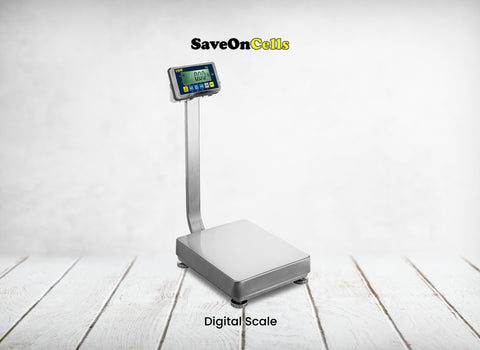
Mechanical Scales vs Digital Scales for Weight
Mechanical Scales vs Digital Scales for Weight
A decision between mechanical and digital scales for body weight can be difficult. A weighing scale helps you measure the mass of a body or object. It is available mainly in two types: mechanical and digital. The mechanical is a traditional model with a spring mechanism, whereas the digital scale is a battery-powered model that uses electric energy. Both devices are reliable and allow you to track body weight quickly.
Mechanical Scales vs Digital Scales: Which Is Better?

To differentiate between mechanical scales and digital scales, let us understand some important features:
Ease to Operate
Also known as an analogue scale, a mechanical scale is a device that operates without any power source. It has a simple mechanism and is easy to use. Even people who don’t know much about the scales can manage mechanical scales easily. For example, you can calibrate it by twisting a knob.
In contrast, a digital scale needs a power source for proper functioning. Newer programs have inbuilt software programs used for numerous purposes, like unit conversions, etc. They can have several functions and buttons, but digital scales can eliminate the guesswork from taking measurements with proper use.
Portability

Digital scales are portable to use and usually have lightweight designs. In comparison, analogue scales are heavier because of their mechanical parts, like spring, etc. In addition, digital scales for body weight have a sleek design and glass finish that makes them look more classy.
Cost
Mechanical scales have a constant cost, and they generally have reasonable prices than digital ones. But some mechanical scale models have slightly higher prices than typical bathroom scales.
On the other hand, if you talk about digital scales, their prices vary significantly. It is because their prices depend on the features and build of the models. For instance, you can purchase a bathroom scale for less than £50, while some sophisticated models can cost approx £100 and more.
Durability
The mechanical scales are more sturdy and durable than digital machines. Such scales have a strong build, but their spring mechanism gets rusty after a few years and breaks down to moisture. Also, some devices are ergonomic, durable, and operate on replaceable and affordable batteries.
Accuracy
The common question that arises is how do I know if my scale is accurate? Most people consider mechanical scales more accurate than digital machines, but they have less precision. Accuracy means true measurement with an acceptable error margin, while precision displays the same readings many times after weighing the same object.
Weighing scales accuracy gets affected due to several factors. However, what's the best way to measure body weight regardless of the weighing scale type? Well, you can find the accurate reading by following the steps listed below:
- Put the weighing scale on the flat, hard surface. Soft flooring can cause variations in reading, negatively impacting the scale’s precision.
- Follow the consistent weighing schedule. For example, choose a time and day to weigh in. every week or month. Moreover, when you stand on a weighing scale, wait for at least three to four seconds to get an accurate reading.
- Calibrate the weighing scale if required to move it to a different part of the room.
Readability
Mechanical weighing scales have a low readability score because their dial swerves as you move and takes some time to set. The digital scale has a bright display and shows exact weight without fluctuations. There are several weighing scales available on online websites like SaveOnCells with a backlight option. You can measure correct weight even in darkness using this feature.
Calibration

Digital scales and analogue machines both require calibration. But the second option is easier to calibrate as it simply involves a twisting of a knob. However, digital scale calibration can be a bit challenging. So, it would be best to look for a model with an auto-calibration feature.
Usually, weighing scale calibration involves pressing a few buttons, like the MODE. Therefore, it is essential to set up the device on a hard and flat surface before it starts calibrating.
Capacity
An analogue scale measuring capacity is usually low compared to a digital scale. So, it would be best to go through the product description before buying one. Also, there are different benefits of a digital scale, and they are easily available in the market.
Mechanical scales can measure weight up to 100 to 120 kg depending on the model version you buy. On the other hand, digital weighing machines can usually weigh around 150 kg, making it a clear winner.
Which are the Best Bathroom Scales for Body Weight you Should Choose?
Mostly, you will find digital scales a better option in terms of accuracy, reliability, functionality, and portability. Still, the final choice totally depends on your personal preferences. For example, if you are looking for the best bathroom scales for body weight, a digital model is better. It is because it has various helpful features used in tracking weight gain or loss.







